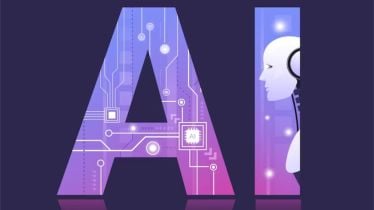By Vijay Daniel
Artificial intelligence (AI) is becoming an undeniable force in many industries as technology advances at a rate that has never been witnessed before. Software testing is one area where artificial intelligence is advancing remarkably. With AI-powered automated functional and regression testing, opportunities for optimizing manual testing methods and assuring software quality are nearly limitless. Thus, it is vital to find out the hidden advantages of AI as more and more companies realize its potential for software testing. However, it is just as critical to recognize and deal with the challenges of integrating AI into software testing procedures. Furthermore, for companies looking to improve their testing procedures, develop test automation tools, produce higher-quality software, and maintain their competitive edge in the modern business environment, it is critical to comprehend and capitalize on the potential of AI in software testing. According to Mordor Intelligence, the size of the automation testing industry is anticipated to increase at a compound annual growth rate (CAGR) of 16.03% from $27.65 billion in 2023 to $58.16 billion by 2028.
Challenges of AI in Software Testing
Insufficient Data Quality: Data quality and availability are two major barriers to using AI for software testing. For AI models to function well and be trained, high-quality data are required. Such data collection and management can be challenging, particularly for advanced software systems. Furthermore, testers are frequently required to collect data on user interactions, system performance, and defect occurrences. It takes meticulous cleaning and precise data labelling to make sure the AI model learns the right patterns.
AI model to worry about data which normally evolves with users discovering interfaces during defect analysis. Functional dependencies within module in end-to-end use cases and module interfaces known initially as baseline with opportunity to update as we discover new interfaces.
Cost and Complexity: Integrating AI into software testing presents challenges both in complexity and cost, particularly in the initial stages. It demands a robust infrastructure and specialized expertise. Furthermore, training AI models is computationally intensive, often necessitating dedicated hardware and software resources. Compounding these challenges is the need for testers to acquire proficiency in utilizing AI tools and methodologies effectively.
Insufficient Domain Expertise and Flexibility: The data used to train AI models is crucial for their functionality. The artificial intelligence system may find it difficult to come up with reliable findings if the training data does not fairly reflect the variety of scenarios and complexity of the software under test. Furthermore, AI models may find it difficult to adjust to software environments that change quickly, necessitating frequent upgrades and retraining. On the other hand, human testers possess the ability to promptly adjust to novel circumstances and utilize their proficiency to manage unexpected scenarios. Interfaces between functionalities within module, interfaces across module and release notes with code component details captured will help AI model to discover on its own test execution plan for a given release.
Benefits of AI in Software Testing
Reduced Manual Labour and Increased Accuracy: AI-based automated testing technologies require less manual labour, as they perform tasks faster and more correctly than humans can. As a result, testers can focus on other crucial activities because these systems can manage a high volume of tests without becoming tired or distracted. Additionally, AI testing is not prone to errors and inconsistencies like manual testing can. Testing aided by AI can help find faults more precisely and identify errors before they become serious ones.
Improved Test Coverage: The potential to attain increased test coverage is among the most important advantages of using AI in software testing. Testers can create a huge number of test cases covering different scenarios and combinations using AI algorithms. Putting various software components through more testing lowers the possibility of errors and improves the overall quality of the product. AI-powered testing solutions, for instance, can analyse requirements, use cases, and test scripts in order to generate test data. This produces test cases that provide thorough test coverage by simulating real-world usage and covering a range of testing scenarios.
Predictive Analytics for Test Planning: The capacity to make predictive analytics-based test planning decisions is another important advantage of artificial intelligence in software testing. AI systems can learn from test outcomes previously conducted and recognize patterns that require effective testing. Testers can properly manage resources, prioritize essential testing scenarios, and maintain automated tests by anticipating expected challenges and analyzing past data. As a result, companies can maximize their testing efforts and produce higher-quality software on budget and schedule.
All Things Considered!
The introduction of artificial intelligence into software testing represents a revolutionary change, providing improved accuracy, effectiveness, and prediction skills. The advantages of AI, such as less manual labour and more comprehensive test coverage, overcome the challenges associated with data quality and cost, which might completely transform software quality assurance. Thus, in order to produce better software products in the current competitive environment, testing departments must embrace AI.
The author is chief executive officer
